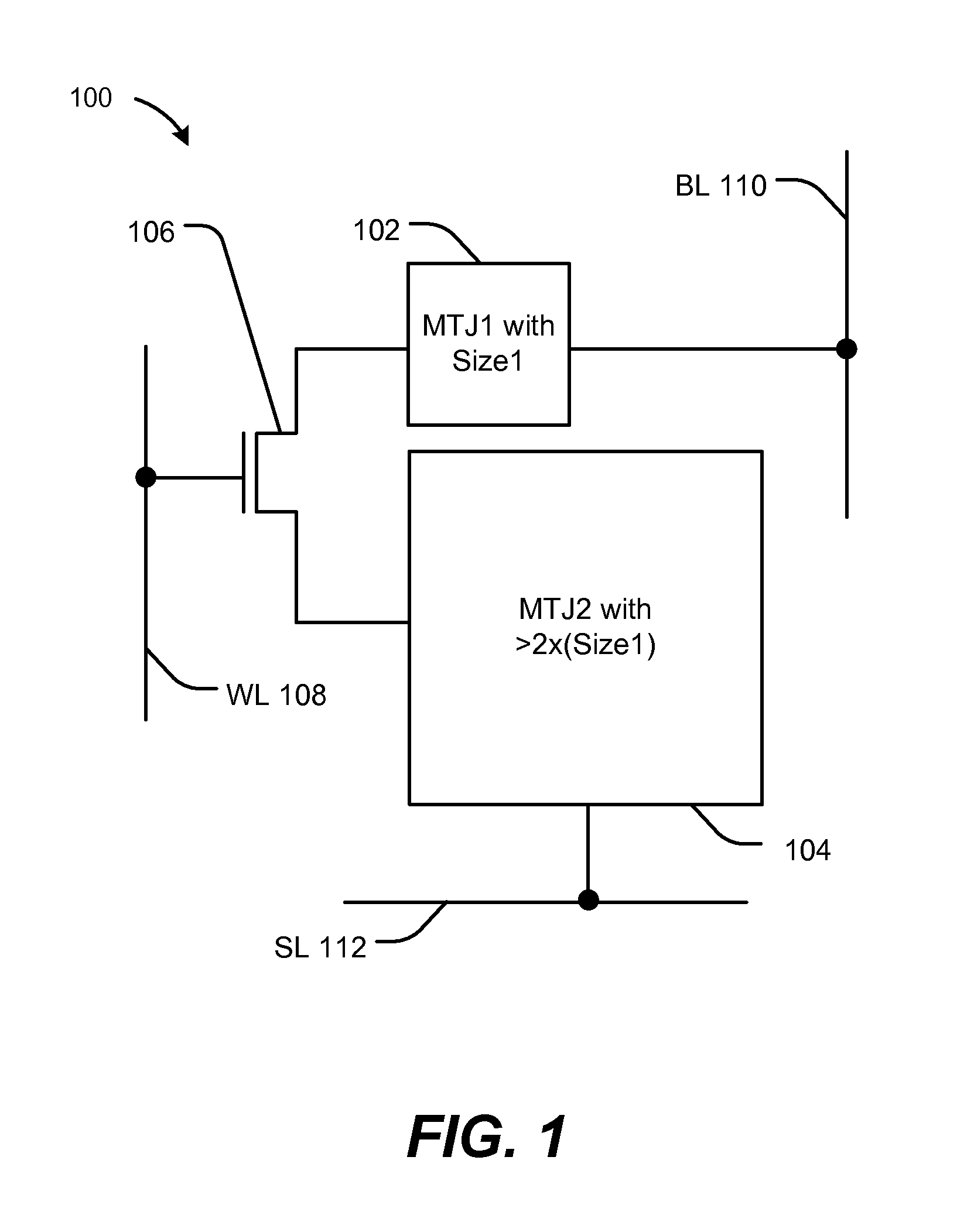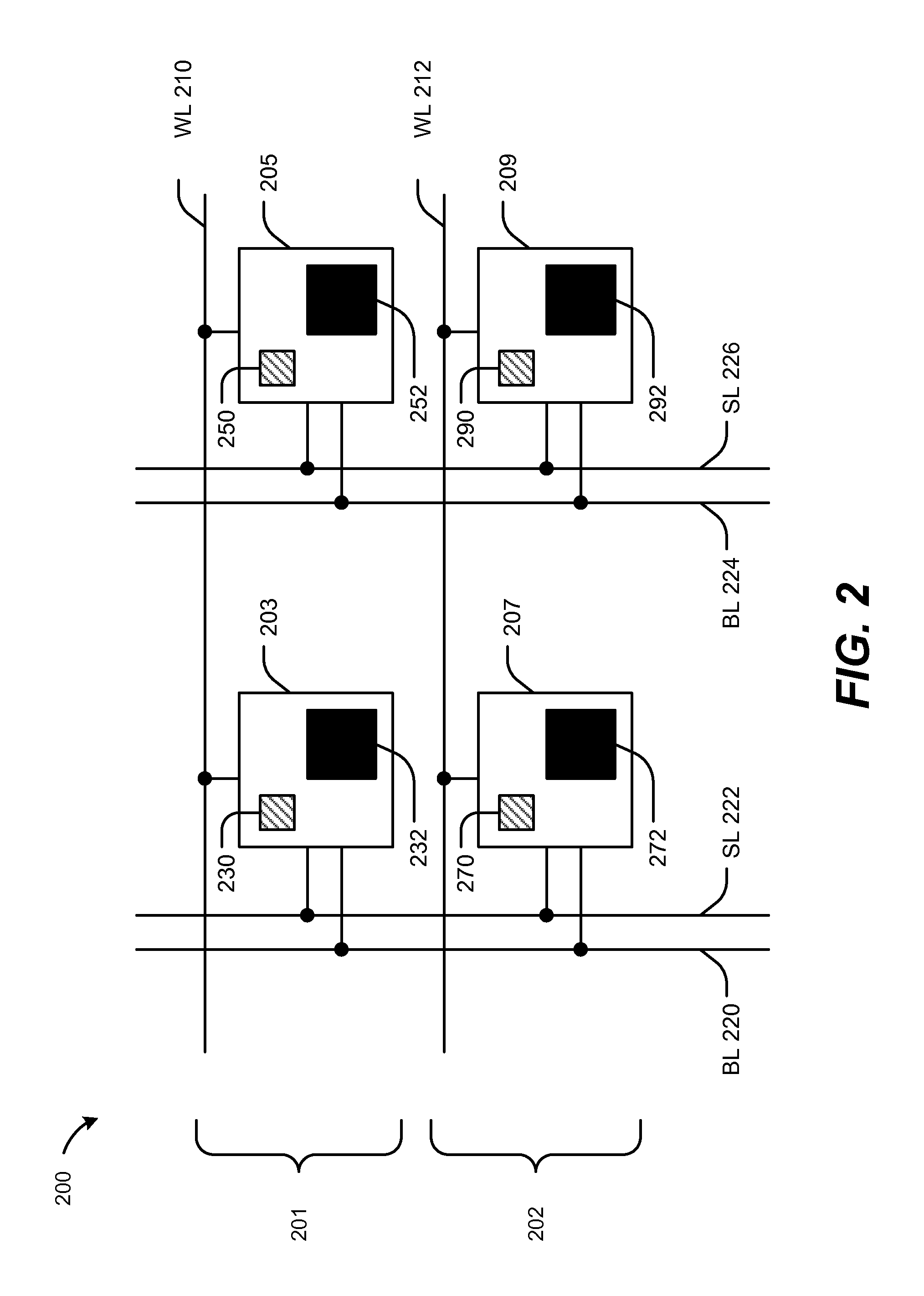Multi-bit spin torque transfer magnetoresistive random access memory with sub-arrays
a random access memory and multi-bit spin technology, applied in the field of multi-bit spin torque transfer magnetoresistive random access memory, can solve the problems of increasing chip area and power consumption, and achieve the effects of reducing chip size and power consumption, consuming less chip area, and less power for data access
- Summary
- Abstract
- Description
- Claims
- Application Information
AI Technical Summary
Benefits of technology
Problems solved by technology
Method used
Image
Examples
Embodiment Construction
[0021]Referring to FIG. 1, a particular illustrative aspect of a device 100 is shown. The device 100 may be a multi-bit spin torque transfer magnetoresistive random access memory (STT-MRAM) memory cell. The device 100 may be integrated within a die (e.g., a semiconductor die).
[0022]The device 100 includes a first magnetic tunnel junction (MTJ) element 102, a second MTJ element 104, a word line (WL) 108, a bit line (BL) 110, a source line (SL) 112, and an access transistor 106. The first MTJ element 102 is coupled to the bit line 110 and the second MTJ element 104 is coupled to the source line 112.
[0023]The first MTJ element 102 may have a first read margin (AR) that is greater than twice a second read margin of the second MTJ element 104. For example, sizes of the first and second MTJ elements 102, 104 may be associated with particular read margins. Based on the difference in sizes of the MTJ elements 102, 104, the MTJ elements 102, 104 may have operating parameters or characteristi...
PUM
 Login to View More
Login to View More Abstract
Description
Claims
Application Information
 Login to View More
Login to View More - R&D
- Intellectual Property
- Life Sciences
- Materials
- Tech Scout
- Unparalleled Data Quality
- Higher Quality Content
- 60% Fewer Hallucinations
Browse by: Latest US Patents, China's latest patents, Technical Efficacy Thesaurus, Application Domain, Technology Topic, Popular Technical Reports.
© 2025 PatSnap. All rights reserved.Legal|Privacy policy|Modern Slavery Act Transparency Statement|Sitemap|About US| Contact US: help@patsnap.com



